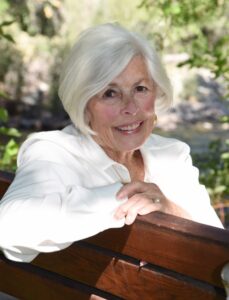BY JOELLEN COLLINS

On one of the hottest days of my California stay, I can still hear many birds enjoy my feeder, chirp as they play in the trees, and then study another other kind of fowl, wild turkeys, with their offspring marching across the field near my small patio. I thought about them recently while reading some of the poetry I took with me when I moved and had to clear out my crowded bookcases. I found a treasured line by e.e. cummings, “I’d rather learn from one bird how to sing/than teach ten thousand stars how not to dance.”
When asked recently what my profession was, I said, “I’m a teacher.” I’ve owned that title since I stood in front of my first class at Santa Monica High School, having just turned 22. It saddens me now to know that I am no longer teaching, which I loved despite the thousands of papers I corrected over the years, carrying them with me always, so that my daughter said that she doesn’t remember a weekend when I didn’t have my bag of compositions with me, even at the beach.
But now, in analyzing my life, I can say that I never tried to teach “stars” how NOT to dance. I hope I encouraged the dance of good communications all those times I wrote comments on students’ papers and read some of the delightful creations to my classes. I no longer need to inspire and encourage my captive audiences to “sing” from their souls and intellect. Instead, I am able to relax and learn, YES, new lessons I can enjoy by putting aside my red pen and simply listening to the songs of others, whether human or animal.
To absorb cummings’ wish to “learn from one bird how to sing,” I need to be quiet, to really hear other creatures instead of adding noise, and, in the process, explore the things that make me happy enough to “sing.” I used to encounter students like Ry Cooder, the renowned 12-string guitarist and, among many other accomplishments, a mentor to the Buena Vista Social Club in Cuba and the resulting movie about it. His compositions inspired me to remember how lucky I was to experience such creative young people. There were always others, of course, like David, a budding poet who wrote about his life in a low-income housing project as a beloved place for him to play happily with his neighbors and not need to compare his daily experiences with the more lavish delights of the wealthy. Another “bird” I listened to was a senior Hispanic boy, a talented baseball player who had been kept in “average” classes because at that time “Samohi” students were relegated to being grouped by IQs and grades in “college prep – X or XL,” “average – T,” or “remedial – R” classes. He begged me to take my “X” class, where he was finally challenged and earned a “B.” I learned how to sing from those and my other students.



